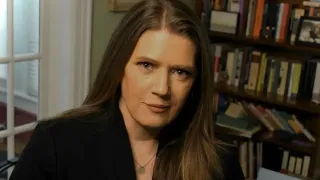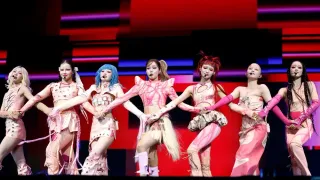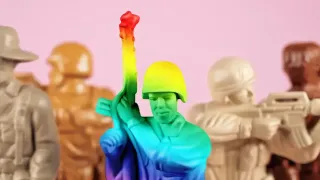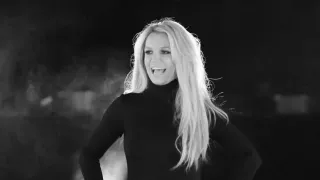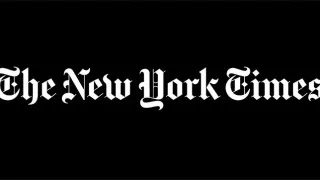January 31, 2023
Chingwe Padraig Sullivan: Queer Native American Actor in SF Playhouse's 'Cashed Out'
Jim Gladstone READ TIME: 6 MIN.
Given a seventh grade history assignment to make "Native American shields" decorated with imagery representing your image of yourself, Chingwe Padraig Sullivan recalls their Boston-area classmates working in media including "Styrofoam and chocolate chips."
A member of the Montaukett and Shinnecock Nations of Long Island, Sullivan costars in the cast of "Cashed Out," currently running at the San Francisco Playhouse.
In an interview with the Bay Area Reporter, Sullivan, 29, reflected on growing up in New England and pursuing a career in theater as a queer Native American.
"My mother and I contacted a family friend who was able to help us work with more traditional materials to build a shield out of tree limbs, leather, turkey feathers and otter pelt," they recalled. "Some of the other students were grossed out by the fur with skin still attached to it."
Written by, directed by, and cast with members of Native American nations, "Cashed Out" provides Sullivan, who uses he, she and they pronouns, a relatively rare opportunity to play a character written with an actor like them in mind.
"There was a lot of colonial history in my school system growing up. When you learn about Thanksgiving, it's not just making hand turkeys," Sullivan noted. "It felt like Native Americans were being talked about at a remove, as 'a part of history,' even though I was sitting there."
Fortunately, said Sullivan, "My mother provided plenty of course correction at home and she also didn't hesitate to tell the school administration that we had a different understanding of things and that it might behoove them to take that into consideration."
An Indigenous Theater Kid
Sullivan's mother, Quita, and father, Mark, who is white, met as theater department faculty at SUNY Stony Brook and went on to long careers in theater and arts administration. Theater is the family business.
"Growing up around theater people and hanging out with my parents at rehearsals as a kid," Sullivan said, "I knew I wanted to be an actor from around the time I was five. My first show in middle school was Roald Dahl's 'The Witches.' "
Throughout their childhood, Sullivan's mother took them on annual visits to the indigenous community where she grew up on Long Island, adjacent to reservations where many of their extended family members still live today.
"In retrospect," said Sullivan, "I was not as involved as I would like to have been. I was a kid with a Gameboy who would probably have been somewhere inside and air-conditioned when we were going to powwows.
"But the stuff I took for granted as a kid has started to matter a lot more to me now, especially since COVID kept me from going back to spend time with that community for a few years. Going back now, it feels like a place that belongs to me in a way, but also doesn't quite. It made me realize that as I go forward in my work, I want to be spending a lot of time in Native space."
Bringing Self to the Stage
As they advanced from high school plays into the theater studies program at Brown and the Trinity Repertory Company, Sullivan has made a concerted effort to incorporate aspects of their identity into their work.
"When I was 19 or 20, I started to wonder whether I was straight, like I'd always thought. I'd definitely been attracted to guys as well as women. At first, I thought that just meant I was bi, but eventually, I came out as Two-Spirit."
"Two-Spirit," Sullivan explains, "Is a modern term, created in Winnipeg in 1990 at a gathering of queer Native Americans. It's not only a gender identity, but a spiritual identity as well. For me, it's about a lack of limitations. To say I was gay or straight or bi feels too limiting for me; any of those would feel more confusing and less comfortable."
Sullivan feels that this sense of personal limitlessness informs his theatrical craft, noting that "there's a comfort in stepping into new identities."
Last year, Sullivan had the opportunity to perform in an acclaimed Trinity Rep production of "The Inheritance," playwright Matthew Lopez's two-part, six-hour gay reframing of "Howards End." Likened by critics to both "Angels in America" and the novel "A Little Life," the Olivier- and Tony-winning 2018 play has yet to be produced in the Bay Area.
"The role of Leo, which was originally written for a white actor, was really altered by my playing him as a Native and a Two-Spirit," said Sullivan. "I remember discussing this in rehearsal, and we all agreed to it."
"But while we knew what we were doing, you can't entirely get the idea across to the audience. There are realities being created on stage that the script doesn't hold, and there are licensing and rights issues that mean you can't change the script."
Going All In
Sullivan describes Levi, the supporting role they play in "Cashed Out," which revolves around the conflicts between a reservation casino and Native traditions, as "slightly clueless, but with a heart of gold."
"It's nice for me to have a play written by a Native American, and a character who grew up on the rez and doesn't want to leave," they said. "There's a paradox playing a character with a background closer to my own than most roles out there. In some sense it gives me more freedom than playing a character who is written as white."
And while Levi isn't Two-Spirit, Sullivan has found that in works by fellow Native Americans, whether in traditional storytelling forms or contemporary plays like this one, "Our stories are built to encompass more things. The whole notion of Two-Spiritedness is non-pejorative to us, it's complimentary to a certain openness about the whole culture."
The most common reminders of Native American culture to many frequent theatergoers in the Bay Area and elsewhere are the land acknowledgement statements incorporated in curtain speeches, noting the original nations who lived on the land a theater is built on.
"I like them in theory, but I have a difficult time with them," admits Sullivan. "Even the most sincere ones grate on me a bit, because despite the fact that these statements are supposed to be a first step in engagement with the Native community, they tend to be the only step. Audience members are encouraged to go do more on their own. That's a nice sentiment, but it's rarely followed through on, individually or institutionally."
"Cashed Out," through Feb. 25. $15-$100. San Francisco Playhouse. 450 Post St. 415-677-9596. www.sfplayhouse.org
Help keep the Bay Area Reporter going in these tough times. To support local, independent, LGBTQ journalism, consider becoming a BAR member.
